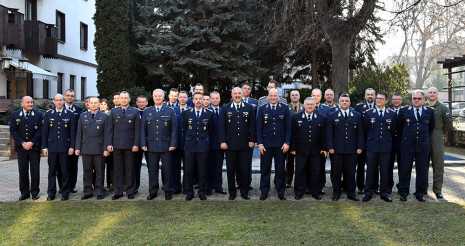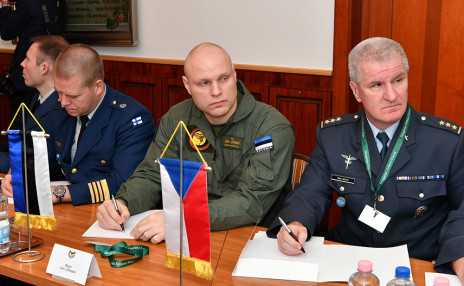Thirty representatives of ten nations consulted on the establishment of a rapid reaction air group to be formed within NATO, on Wednesday, 6th February in the capital. The host of the conference was the Hungarian Defence Forces (HDF).
Among other nations, the representatives of the air forces of Czechia, Finland, Poland, Germany, Hungary and Slovakia attended the conference presenting the Multinational Air Group (MAG). Brigadier General Nándor Kilián, the Inspector of the Air Force Branch of the HDF Command said at the event that the changed security situation led the Alliance to create so called multinational rapid reaction groups; which also include the air force. The German-led group will achieve full operational capability (FOC) by 2026.
Co-operation is given a key role in the MAG-system, that would allow the exchange of information, and the development of the joint airlift capability. However, the emphasis will be laid on rapid reaction – as its name indicates. The groups will conduct exercises, and the Hungarian Air Force will take part with the Gripen fighter jets in these; according to plans also the air defence missile units might be involved in these training exercises in the future.
In his opening address Lieutenant General Ingo Gerhartz, the Commander of the German Air Force stated that the security challenges affecting NATO clearly point the way for the organisation, and that is why the establishment of rapid reaction units is needed. As has been said at the conference, MAG is not only important because of its rapid deployment capability, but thanks to the different nations and military capabilities it is a sort of a “toolbox", by which any possible problems arising can be properly addressed.
Whilst this matter is not directly related to the conference, but it is worth noting that the Hungarian and the German Air Forces concluded a Co-operation Agreement on Tuesday, 5th February. The Agreement was signed by Brigadier General Nándor Kilián and Lieutenant General Ingo Gerhartz in the capital. During the signing of the document Brigadier General Nándor Kilián pointed out that the relationship with the German Air Forces has not just then begun, but they would like to further strengthen it and take it to a new level.




